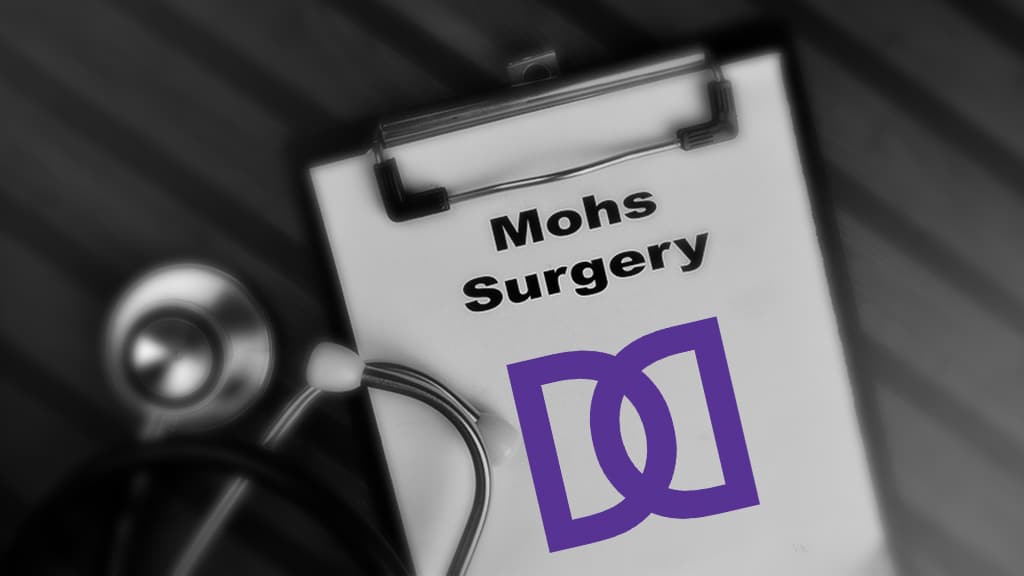Qualifying for Skin Cancer Removal with Mohs Surgery
A success rate approaching 99 percent provides the greatest chance for a total cure of skin cancer with Mohs surgery. Innovative techniques developed by Dr. Frederick Mohs at the University of Wisconsin introduced life-saving procedures that dermatologists at Derick Dermatology implement for patients. With minimal scarring, the Mohs method gives patients and loved ones a well-founded hope for full recovery where other treatments fail.
Understanding the Procedure
Derick Dermatology offers patients access to Mohs technology as a keystone of the exceptional medical and cosmetic dermatology services that distinguish its exemplary record. Highly skilled dermatologists provide outstanding services in 18 Chicagoland suburbs to identify, diagnose, and treat skin cancer and all types of skin conditions. With an emphasis on training and accessible, state-of-the-art medical facilities, Derick Dermatology leads the field in dermatological expertise.
Considered the gold standard for treating different types of skin cancer, Mohs surgery treats occurrences on the facial, scalp, digital, and genital areas with exceptional attention to margins. A primary difference between Mohs and other types of skin cancer surgery lies in alternative tissue removal and analysis approaches. With an examination of all surgical margins, the Mohs method greatly exceeds the evaluation of less than 5 percent in other treatments. The meticulous, sequential analysis of the edges of removed tissue confirms the complete removal of skin cancer while retaining the maximum amount of healthy tissue.
Recognizing the Need for Surgery
Melanoma, the most serious and potentially the deadliest of skin cancers, can spread rapidly throughout the body and create the potential for dire consequences. Derick Dermatology recommends Mohs surgery only when detection occurs early and under certain other conditions. Most patients receive good results from skin cancer surgery and enjoy an exceptionally high cure rate. However, qualifying for the procedure requires an evaluation by a dermatologist.
Other types of skin cancer may spread also, but they more commonly become larger. Removal as soon as possible with Mohs techniques preserves the greatest amount of healthy tissue and presents the best chance for minimal scarring.
Skin cancers become more difficult to remove over time, and disfiguring can result when they continue to grow unabated. When they occur on joints, they can produce limitations on movement, and skin cancers on the scalp also require unique considerations. An appointment with a dermatologist experienced with Mohs surgical techniques can allay fears and present opportunities to recover quickly and enjoy a cancer-free lifestyle.
Considering the Advantages of Mohs Surgery
In use for more than 70 years, Mohs Micrographic Surgery (MMS) has a history of treating large nonmelanoma skin cancers that other treatments failed to cure. In recent years, the procedure has earned a reputation as one of the best options available. Many skin cancer tumors require nothing more than MMS to eliminate the condition completely.
The advantages of the procedure make it outrank any other option for efficiency and effectiveness. In addition, MMS preserves healthy tissue as much as possible and prevents the removal of any excess tissue. As a result, patients often recover more quickly with minimal invasiveness and have less scarring. A reduction in the need for reconstructive surgery may occur as well. As a path that leads patients to gain full recovery, MMS may succeed where excision and other treatments do not.
Examination of the skin’s layers individually under a microscope allows surgeons to remove all traces of cancer. As a result, most patients require no additional surgeries, a condition that provides reassurance and eliminates undue psychological and financial concerns. Experienced dermatologists trained in the Mohs method offer expertise in preventing scarring, contributing to patients’ well-being and recovery.
Fitting the Profile for Mohs Surgery
A recommendation for MMS may occur when patients have large or aggressive basal cell or squamous cell carcinomas. The procedure may provide the best option in areas with minimal supporting tissue. Other conditions that may benefit from treatment with MMS include skin cancer that received treatment and reoccurred. The high cure rate makes it exceptionally appealing to patients needing the best surgical treatment. Mohs micrographic surgery allows surgeons to observe where the cancerous condition stops, a factor that contributes to the high success rate. At the 18 locations of Derick Dermatology in Chicago’s suburbs, anyone who wants treatment for skin cancer can receive it.
Knowing What to Expect
The Mohs method allows patients to receive treatment during a single visit on an outpatient basis. Some unique features include local anesthesia that numbs the area where skin cancer appears, and most patients remain awake for the procedure. Clinicians perform lab work on-site to verify the examination of 100 percent of a tumor’s margins. Either stitches or reconstructive surgery may provide needed closure as aids in the healing process.
Finding Treatment Locally
Chicagoland’s suburbs have convenient access to world-class skin cancer surgery at Derick Dermatology’s 18 locations. A board-certified dermatologist trained in the Mohs method can provide treatment that produces an exceptionally high success rate. As a result, anyone who has anxieties about skin cancer can receive the finest care from a leader in the field with a tradition of excellence. The doctors and staff at Derick Dermatology bring a passion for excellence to each patient and honor a reputation for leadership, expertise, professionalism, and compassionate understanding.







